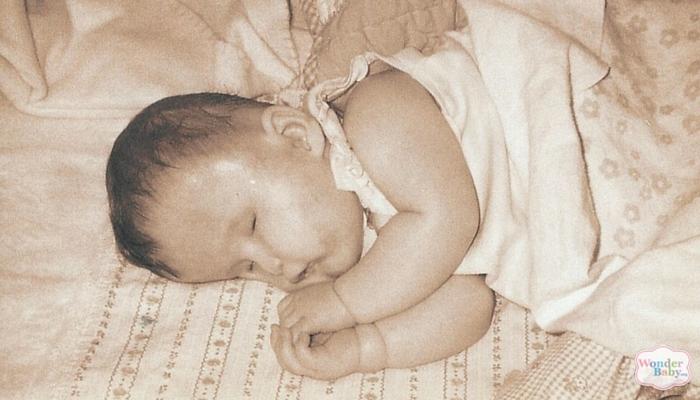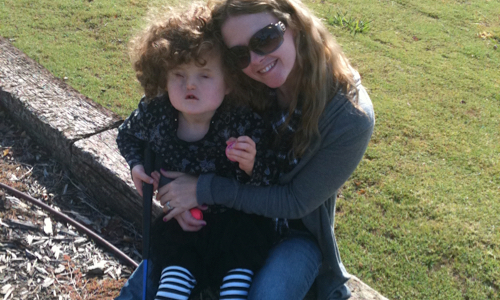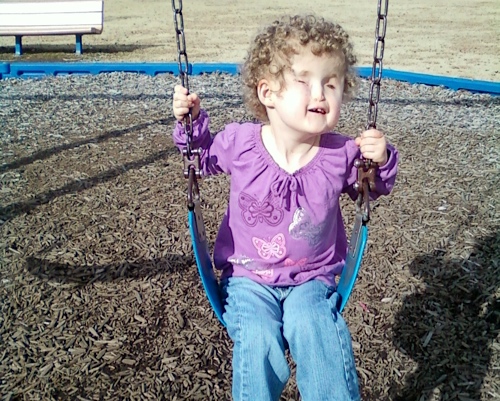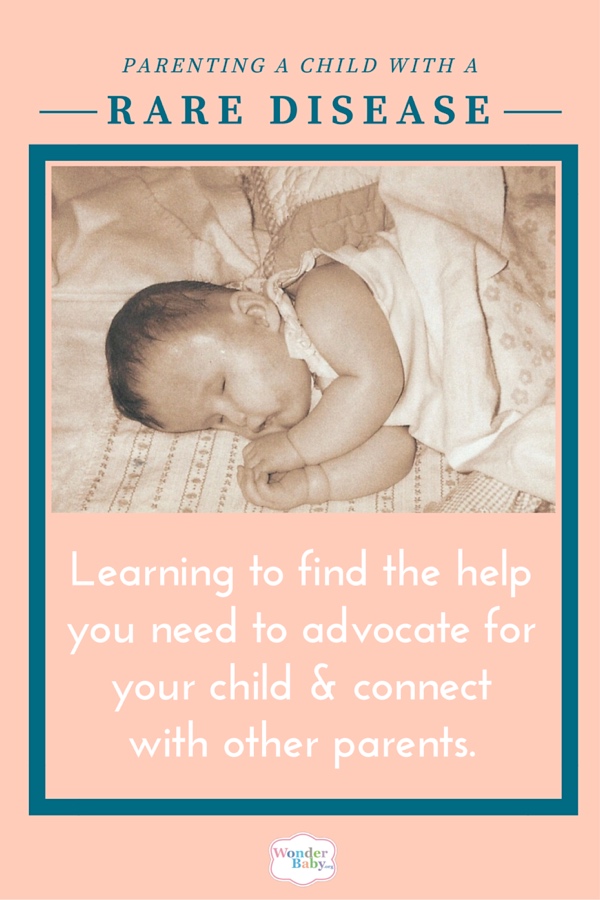Parenting a Child with a Rare Disease

Before I had my daughter Madilyn, I was not truly aware that rare diseases existed around me nor what it truly meant to live with a rare disease. The word “disease” in my mind had a very negative connotation more commonly associated with an illness contracted from unsanitary living conditions, and not the diagnosis for a child born to healthy parents.
The first time I ever heard of the rare eye condition my daughter was born with was at an ultrasound just a few months before she was born. I was confused when the doctor told me that she may not have eyes. “What could that possibly mean?” I thought as I tried to picture what her little face would look like without eyes. “Will there be slits for eyelids or anything?” I remember thinking as I tried to process it all. The doctor finished the appointment and walked out before I could find the words to ask him to explain it further.
Once I got home I looked it up on the internet (it was 2004 however and there wasn’t as much support online as we have today). I was worried about what I might find and hesitant of even searching “baby without eyes” because I wasn’t sure how reliable any of the information I found might be.
At this point, I was scared of everything the future held and didn’t know where to turn for help. I ended up finding the name of the eye condition, anophthalmia, from the organization Birth Defect Research for Children, however we weren’t certain of what my daughter’s diagnosis would be until after she was born. By that time, I had contacted every organization I could find that had any mention of visual impairments on their website, including the state school for the blind, to help her.

After Madilyn was born, her team of doctors came at me with a long list of possible diagnoses which included the words “birth defect” and “rare disease” not once, but many times. The hospital had minimal information about any of it. One doctor gave me a photocopied page out of one of his own books that he referenced to diagnose Madilyn’s underdeveloped nasal passages and nose structure. He believed it to be a part of the syndrome Arhinia and said she would need a tracheotomy to help her breathe safely. The thought of surgeries, trying to understand words I could barely pronounce, and still more to be diagnosed, had me on edge 24/7. I wanted to do what was best for Madilyn, but I needed someone to turn to for help who really understood what was going on and how I felt.
As time went on, the list of diagnoses did become longer and longer. Luckily, I was able to find more extensive information online through a couple other websites now that there was more information to go on. I learned about the pros and cons of living with a trach, including safety, complications and delayed language development. I was still averse to the idea of Madilyn needing the surgery because she appeared to be doing so well without one. However, the resources I found online and discussing it in-depth with the doctors gave me the information I needed to accept the decision for Madilyn to have a tracheotomy at only a month old. Being informed helped me be more at ease with the surgery and taking her home where I would be her sole caregiver responsible for it all. I felt like this was my first time for true advocacy with my daughter.
Madilyn had the surgery and everything went fine. Once we were home to stay for some time I finally felt ready to connect with other families of kids who were blind and had other diagnoses similar to Madilyn’s. I lived in a rural area in Arkansas however and there weren’t many others going through the same things as we were. I eventually came into contact with a state organization for parents of kids with visual impairments. The parents I met through being involved in the organization are now my lifelong friends, and their kids will most likely be Madilyn’s lifelong friends, too.

The journey of being a parent to a child with a rare disease and needs different than many kids, including being blind, is not an easy one. It takes lots more time, doctor’s visits, surgeries and tests, than you’ll probably see your friends take on their path of navigating parenthood. Sometimes you’ll need someone else in the same boat, who has traveled a similar path as you, maybe even steering off and on again while trying to figure it all out. Don’t despair if it takes some time to find the best information and people to guide you or if a diagnosis has not been determined. There are people out there who would love to connect with you!
These days there are several websites available serving families of kids with rare diseases and other needs to help you down your own path of medical issues, connecting with other families, and advocacy for your child. Many websites are specific to a certain disease or surgery like the ones I found for bilateral anophthalmia and tracheotomies.
You can find the information you need for rare diseases on one of the websites listed in the WonderBaby article, Rare Disease Resources. Be sure to check out our awesome infographic on the page, too! If you have questions for us or other parents of kids with visual impairments, please contact us or use the Comments section below!

Related Posts

Eye Conditions and Syndromes, Visual Impairment
Neuralink Announces Plans to Restore Sight to the Blind with Brain Chip
Elon Musk’s company Neuralink has announced plans to begin human trials of its new “Blindsight” brain chip by the end of 2025.

Special Needs
5 Spring Cleaning Tips for Families of Children with Disabilities
Spring cleaning is an opportunity to create a more accessible, organized, and supportive space for your child with disabilities. Declutter, deep clean, and refresh!

Visual Impairment
The Gift of Understanding: How a Young Child Helps His Blind Father Navigate Life
When a parent is blind, it’s natural for people to wonder how their sighted child will adapt. Will they struggle to understand their parent’s needs? Will they feel burdened by...
